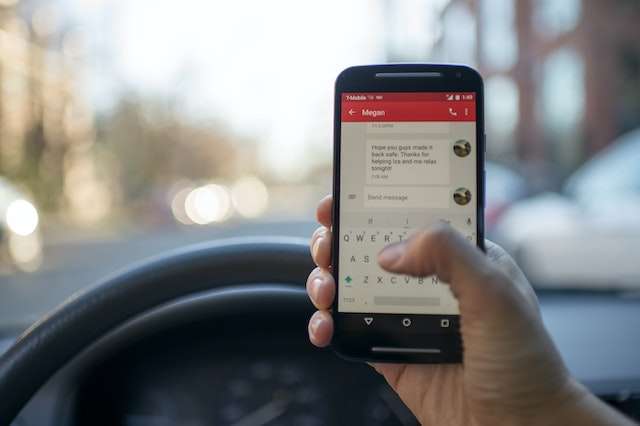The Pros and Cons of SMS Marketing and Mobile Marketing for Small Businesses
Small businesses tend to have limited resources, namely finances, staff, and time. Therefore, they need to make every effort count and avoid inefficient decisions or mistakes that can lead to setbacks. Small businesses must carefully weigh each approach’s potential benefits and drawbacks before committing to any strategy.
Because people spend 3 hours and 15 minutes daily on their phones on average, Short Message Service (SMS) and mobile marketing are two high-potential marketing strategies for small businesses to reach many customers with relatively low investments.
While both can be effective, they have different pros and cons you need to consider.
SMS Marketing Pros
Text or SMS marketing involves sending promotional or informative text messages to mobile devices. It offers several advantages for small businesses looking to reach their target audience effectively and cost-efficiently.
Marketers must use the right tools to attain their SMS marketing goals. One of these is robust mobile marketing software that can automate SMS marketing tasks to reach more recipients quickly. This tool enables small businesses to accomplish the advantages below.
1. High chance that people see and read texts
Most people will likely see your texts because they’re constantly on their phones. SMS marketing enjoys a 98% open and 45% response rate. In terms of engagement, SMS blows email open rates out of the water, which sits at around 21%.
Mobile marketing software can integrate with other marketing channels like email or social media platforms. That way, small businesses can create cohesive, multi-channel campaigns, reinforcing the SMS messages and increasing the chances of recipients seeing and reading them.
2. Segmented lists for personalization
Your business can send texts to segmented contacts, allowing you to personalize the messages to better your customers’ experience. For example, including details such as purchase type or location can make the recipient feel like you’re speaking to them directly instead of as a faceless statistic.
Mobile marketing software offers segmentation and targeting capabilities, enabling small businesses to divide their subscriber base into specific groups based on demographics, behavior, or other criteria. This strategy promotes more precise targeting of SMS messages, ensuring recipients receive relevant and valuable content they’re more likely to read.
3. Fast delivery
Texts send almost instantly, making them excellent for time-sensitive messages or promotions. Additionally, you won’t need to worry about whether customers are connected to the internet since SMS doesn’t require Wi-Fi to work. These features make messages such as post-purchase follow-ups or event-based sales announcements perfect for the platform.
4. Clear costs
SMS marketing can be very cost-efficient, depending on how many messages you send. Most providers charge per message or offer subscription plans, making it easy for businesses to track their spending.
You can save money by using a robust mobile marketing software program for your SMS campaigns. With this intuitive automation tool, you can reach many customers at a relatively low cost per message, making it an effective and budget-friendly communication channel. Moreover, you can reduce printing and paper costs for flyers, brochures, and direct mail, contributing to even more savings.
5. Availability of automation
Due to the relatively simple format of SMS messages, marketers can apply automation technology easily. Small businesses can incorporate automation to optimize their marketing campaigns, from segmenting contact lists to generating text content.
In addition, marketers can easily evaluate their SMS marketing efforts with the help of mobile marketing software. This tool provides insights into message delivery, open, and click-through rates, and other relevant metrics. By monitoring these analytics, businesses can optimize their messaging strategies and identify areas for improvement.
SMS Marketing cons
While SMS marketing for startups and small businesses offers several advantages, there are also potential drawbacks that you should consider before implementing a campaign.
1. Strict character count
SMS messages are generally limited to 160 characters, so getting everything you want to say to the recipient can be challenging. However, you can partially circumvent this limitation by including a link to a website with more information. The character count limit can even inspire creativity, which may help your marketing effort.
2. Opt-out option
SMS marketing usually uses lists like email marketing. If customers feel like you’re spamming them with promotional texts, they will likely opt out of receiving anything further. Too many customers opting out of your SMS marketing campaign can damage your business’ image and customer relationships.
3. Potential legal concerns
SMS marketing is subject to regulations, so failure to comply can lead to fines and penalties. Study applicable laws on marketing practices before committing to an SMS marketing campaign to help you avoid costly legal concerns.
4. Limited visual appeal
Ads today need to be flashy to stand out. Since SMS messages are limited to text, there’s no room for visual solutions to appeal to customers. This limitation can be an issue for businesses that rely on pictures or videos to display their products and services.
5. Limited tracking and analytics
The results of your SMS marketing efforts may be challenging to track as you have no direct access to data. The best way to gather data would be to add the question, “How did you find out about us?” in a form, but it’s unlikely that all your customers will respond to a post-purchase follow-up.
Mobile Marketing Pros
Mobile marketing is a range of tactics and techniques designed to engage customers on their mobile devices—specifically smartphones and tablets. Popular examples are apps, websites, and push notifications. Mobile marketing offers small businesses various tools and channels to reach large audiences.
1. Adaptable audience selection
Because so many apps and websites are available, your ads and messages can target either extremely specific or vast audiences based on what you want. For example, ads on a niche app can appeal to a select group of people, while posts on more popular platforms can reach a wider audience.
2. Visual options
Unlike text marketing, mobile ads can include images, videos, and animations, depending on the platform. These options can deliver your message more cleanly and efficiently than text alone. For example, a short demo video can do more to convince an interested watcher than a paragraph about your product’s features.
3. More options for creativity
You can create campaigns that take advantage of the interactive nature of mobile devices. For example, interactive content and gamification can promote your brand better than straightforward text or images. Creative mobile ads that maximize the capabilities of a platform can leave lasting impressions on your audience.
4. Multi-channel approach
You can market on multiple channels with mobile marketing—social media, applications, email, and text—increasing the likelihood of reaching existing and new audiences. You can incorporate some or all these platforms on one device, whether your customers’ phone or tablet.
5. In-app and push notifications
Using notifications on your app or elsewhere can quickly engage with customers and notify them of time-sensitive information, much like texts. These notifications can work better as the recipient is already on an app related to your business and is more likely to notice.
Mobile Marketing Cons
Like any marketing approach, mobile marketing comes with disadvantages as well.
1. Higher costs
Given the need for specialized ads for each platform you choose, mobile marketing can be much more expensive to implement. For example, apps don’t share the same code base and ad format, so you have to tailor each ad for each app, requiring more time, effort, and money to adjust to the app’s unique requirements.
2. Requires know-how
While many channels are available on mobile devices, each requires at least some knowledge about how it works to enable you to market through it effectively. This requirement can mean understanding the platform’s culture, audience, or technical skills like programming and app design, which takes time.
3. Greater potential for annoying customers
Unlike SMS and email marketing’s opt-in lists, mobile apps reach a broader audience that often doesn’t have a say in what they see. Intrusive, annoying, repetitive ads can potentially harm your business’ reputation.
4. More competition
Mobile is such a pervasive marketing platform that nearly every company wants a slice of user attention. Even the most niche websites and apps have businesses advertising to their users. Your marketing will need to outperform a lot of competition to secure a portion of mobile’s user base.
5. Rapid, unpredictable shifts
New platforms, technologies, and best practices emerge daily on mobile platforms. The landscape constantly moves and evolves, which can quickly invalidate or counteract your marketing efforts. This concern is particularly damaging for small businesses, which may not have the resources or staff to keep track of and adapt to these changes.
How to Choose the Right Marketing Channel
When it comes to choosing between SMS and mobile marketing, there are a few key factors that you should consider.
1. Goals
What are your marketing goals, and how can these channels help you achieve them? SMS marketing may be better suited for short-term, direct-response campaigns, while mobile marketing can be better for long-term brand building and engagement.
2. Audience
Who are you trying to reach with your marketing messages? SMS marketing can be more effective for existing customers. You can personalize their experience and retarget them to encourage them to buy again. On the other hand, mobile marketing has a broader reach and may be more effective if you’re looking for new buyers.
If your products are for mobile users in general, both methods can apply. However, specialized products and services may benefit from the targetability of mobile marketing more.
3. Budget
How much are you planning to invest in your marketing campaign? SMS marketing is cost-effective, which makes it more appealing to smaller businesses. On the other hand, mobile marketing campaigns tend to be more expensive, but they have a greater opportunity for massive returns if successful.
4. Resources
What internal and external resources do you have available to execute your campaigns? A smaller team with limited expertise may find SMS marketing more accessible. If you have access to technical experts, they can make accessing mobile markets easier for your company.
Making the Call for Your Marketing Strategies
As the owner of a steadily growing small business, you have a lot of tough decisions to make. Many of them can boost or impede your growth. Choosing the right marketing channel is just one of many decisions you must make, but it can significantly impact your success.
With a better understanding of your options and carefully considering your goals, you can decide which marketing channel suits your needs and resources. It’s worth noting that these two are not mutually exclusive; businesses may find success in incorporating multiple approaches in tandem if they have the resources to do so.






